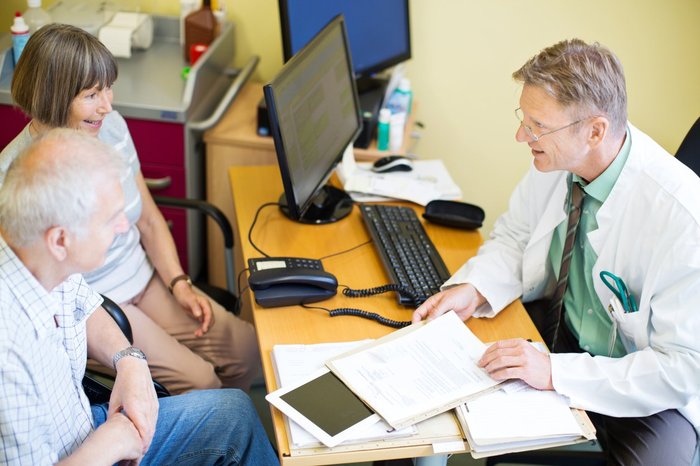So you’ve completed the Kidney Health Checker and it's suggested you make an appointment with your doctor to talk about your kidney health.
But what should you tell them? And how can you get the most from your appointment? We have some expert tips to help you speak to health professionals about your kidney health.
Before your appointment
- Download or print out the results from the Checker. This may be helpful to show your GP in the appointment.
- Think about any of the detail you want to tell them and make notes to help you remember in the appointment. Some things to consider sharing with your GP may include:
- information about any family members with kidney disease
- any potential symptoms you’ve noticed – it may be useful to keep a diary of these for a week or two before your appointment
- the risk factors you think you may have.
- Write down any questions you want to ask, too. For example, could they give you some tips on how to protect your kidneys?
- Think about whether you want to ask anyone to go with you to the appointment. Having someone with you can be helpful for moral support. They can also help you ask questions and remember what the doctor says.
- Read through the basic kidney information on the Kidney Care UK website to get familiar with some of the terms your GP might use.
In the appointment
- It’s important you understand everything your doctor says. Most of us aren’t used to talking about our kidney health and some of the information can be quite complex. “Don’t feel embarrassed to ask your GP to explain something again in a different way,” says GP Dr Roger Henderson. “They’ll want you to understand so they won’t mind going over it.”
- There’s often a lot to take in in an appointment, so it may be useful to take a few notes. If you have someone with you for support, you could ask them to jot things down so you can concentrate on the appointment.
- Your doctor may carry out some checks in the appointment, such as weighing you and taking your blood pressure. You may wish to take a note of the figures so you can compare the results next time.
- Be proactive and ask if there are any lifestyle changes you should make now. Some general information is available on the Kidney Care UK website, but your GP may have some more specific recommendations for you.

After your appointment
- If you’ve been referred for any further tests, make sure you know when they are and what you have to do in preparation – for example, you shouldn’t eat meat in the 12 hours before you have the blood test (called creatinine) that is used to diagnose CKD.
- You may have been given some lifestyle advice to follow. It’s never too soon to start protecting your kidney health. So why not start thinking now about how you’re going to put healthy lifestyle steps into place?
- Once you get test results, you could ask your doctor:
- What do my results mean?
- Do I need any other tests? If I do, what are they?
- Will I be tested again? When will I be tested again?
- Is the cause of my CKD inherited – do I need to tell my family to have tests as well?
If you’re not happy with what your doctor says
Doctors follow guidelines to help them diagnose and treat conditions. If they think someone’s at risk of CKD, there are certain steps they should follow, including carrying out simple blood and urine tests.
“If your GP doesn’t offer these tests and you’re still worried, explain how concerned you are and ask why they’re not suggesting tests,” advises Dr Henderson. If you’re still not happy, you could ask to see another doctor in the practice.
AstraZeneca has contributed to the funding of this material as part of a Patient Advocacy Group Partnership between Kidney Care UK and AstraZeneca UK Limited. AstraZeneca has had no editorial input into or control over the content which has been independently owned and created by Kidney Care UK.